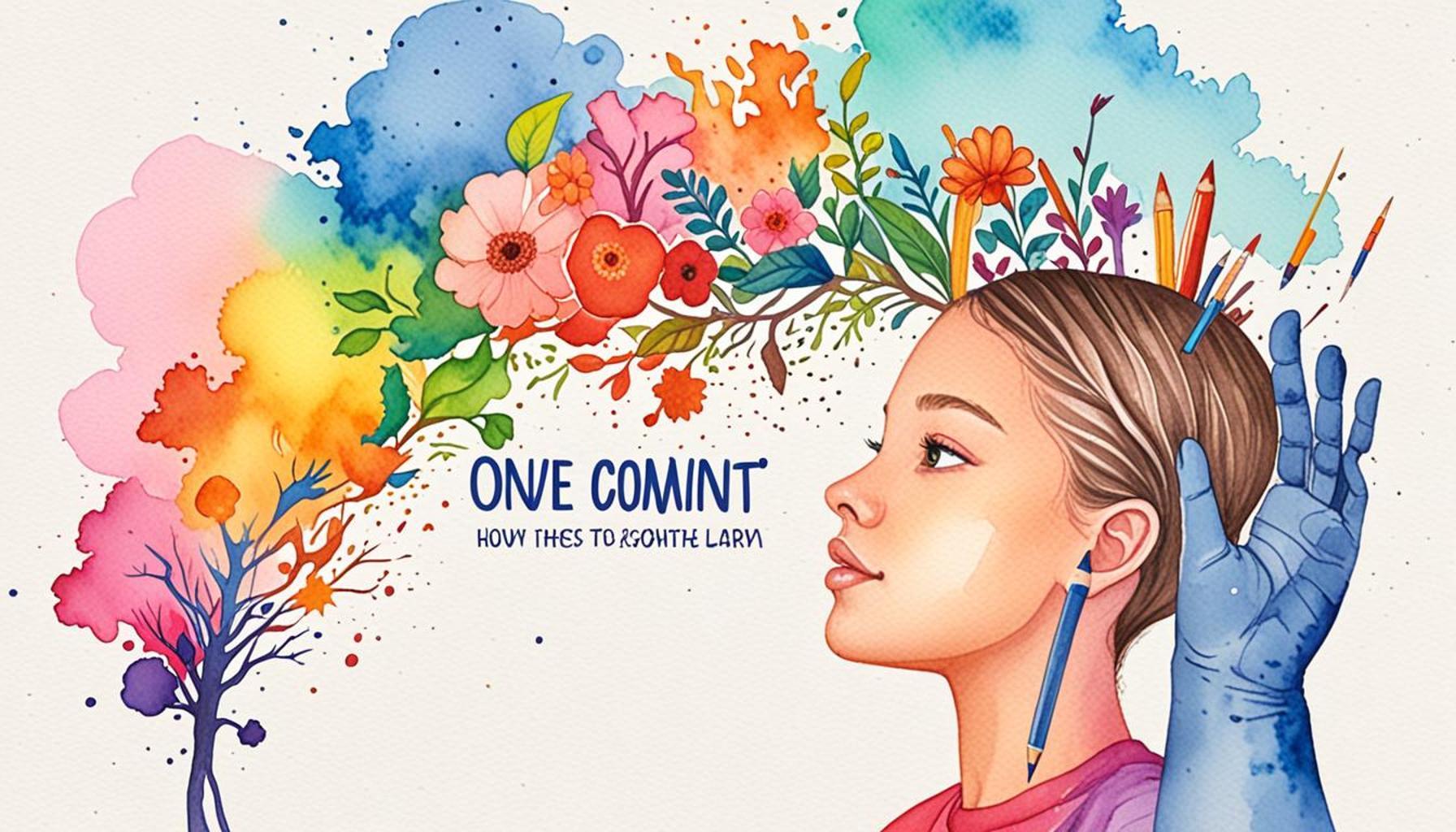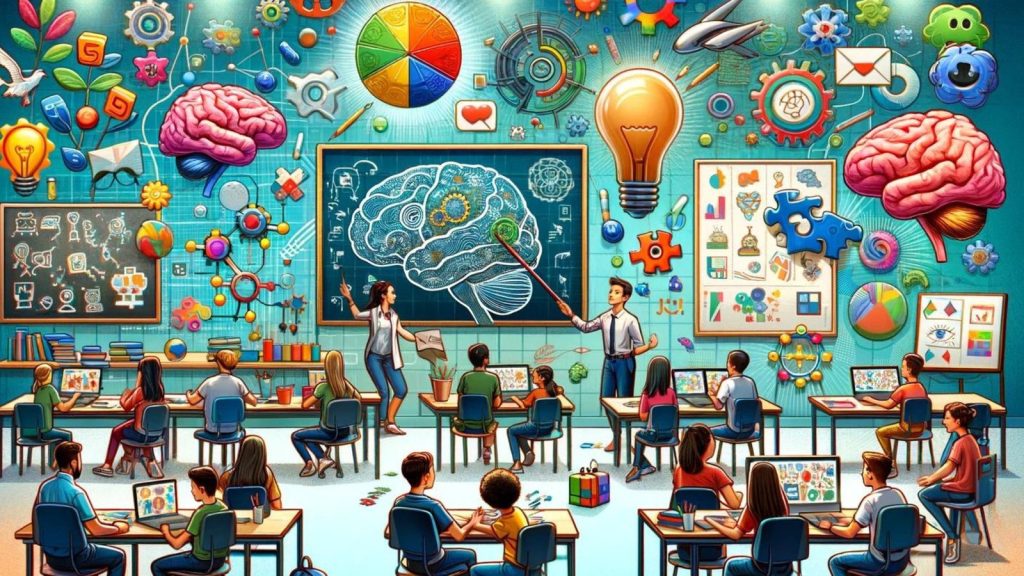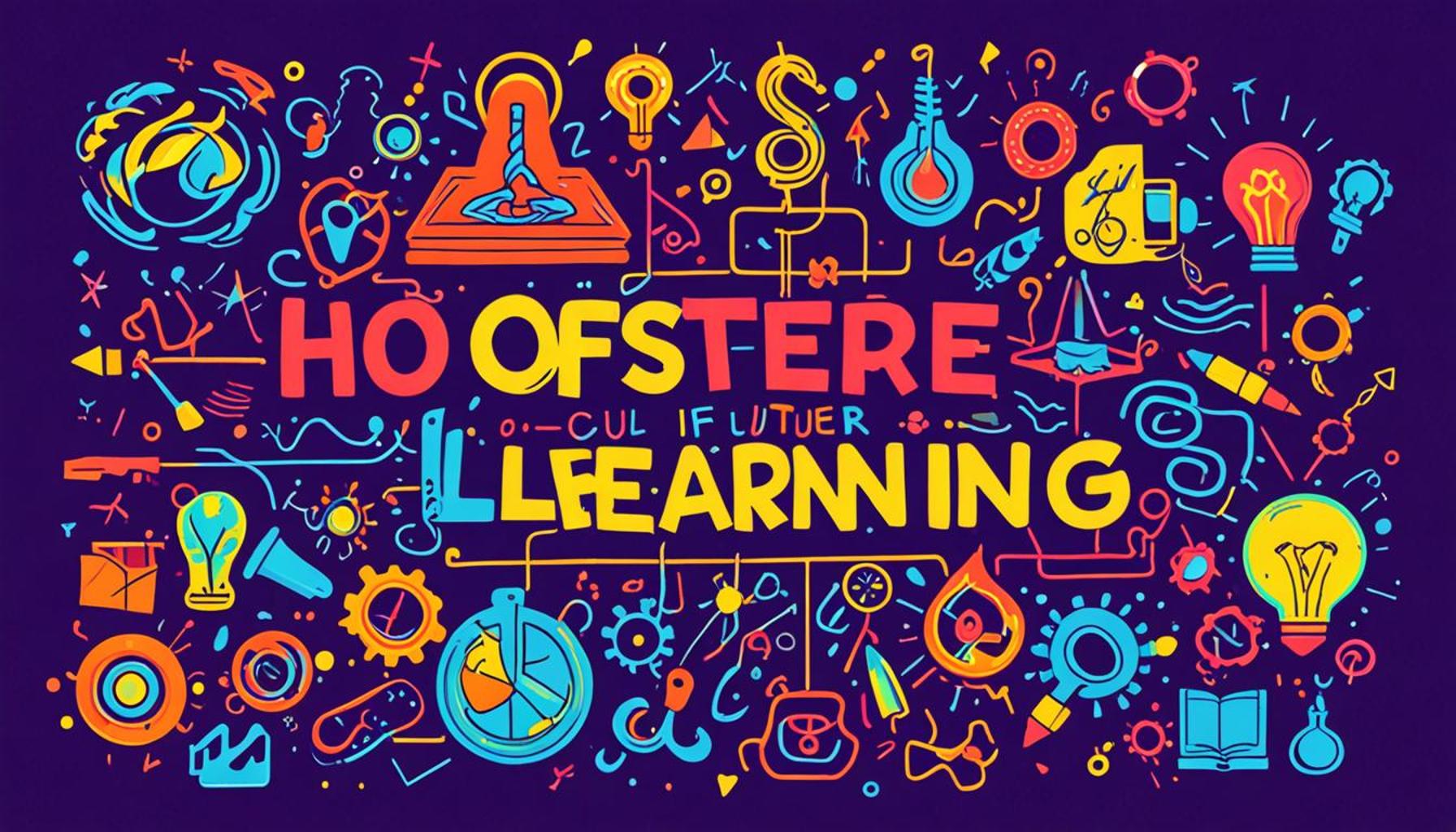Overcoming Barriers: How a Growth Mindset Facilitates Access to Continuous Learning

Overcoming Barriers to Personal Growth
In the quest for self-improvement, numerous individuals find themselves wrestling with barriers to personal and professional growth. Amongst these hurdles, three common challenges often arise: fear of failure, lack of resources, and limited support systems. Each of these obstacles can create a significant roadblock to progress, particularly in regions like Nigeria, where opportunities for development may not be universally accessible.
Fear of failure can be paralyzing. Many people are conditioned to view failure as a negative outcome, leading to avoidance of situations where they could potentially stumble. For example, a student might shy away from pursuing higher education or skill acquisition because they fear not performing well. Instead, a shift towards a growth mindset encourages them to see failure as an essential stepping stone to success. Embracing the idea that every misstep is a learning opportunity can inspire resilience and innovation.
Another barrier frequently encountered is the lack of resources. In Nigeria, not everyone has access to quality education and training facilities. This scarcity can lead to feelings of helplessness and stagnation. However, this situation can be navigated through creative solutions such as community workshops, online courses, and peer-led study groups. Utilizing free resources available on platforms like YouTube or local libraries can also provide valuable knowledge and insights that were previously inaccessible.
Furthermore, individuals often struggle with limited support systems. Without encouragement from mentors, peers, or family, motivation can wane. In Nigeria, nurturing a supportive community is vital. Initiatives like mentorship programs and local networking events can foster connections that provide encouragement and constructive feedback. For instance, organizations such as the Tony Elumelu Foundation offer training and mentorship to budding entrepreneurs, showcasing the power of collective support in overcoming individual challenges.
Fostering a growth mindset is particularly important in contexts where obstacles are prevalent. This mindset encourages individuals to:

- Embrace challenges as valuable opportunities for learning and growth.
- Persist in the face of setbacks, viewing each difficulty as a lesson.
- Seek out constructive feedback rather than fearing criticism.
By adopting this transformative approach, individuals can unlock their potential and embark on a journey of lifelong learning. Recognizing that limitations are often self-imposed empowers people to redefine their capabilities and pursue their aspirations with renewed vigor.
Ultimately, the path toward growth begins with a simple yet profound shift in perspective. By actively challenging barriers and approaching learning as a continuous journey rather than a destination, individuals—especially those in Nigeria—can harness their potential and make strides toward achieving their personal and professional goals.
LEARN MORE: This related article may interest you
Unlocking Potential Through a Growth Mindset
A growth mindset, a term popularized by psychologist Carol Dweck, refers to the belief that abilities and intelligence can be developed through hard work, dedication, and persistence. This perspective is crucial for individuals striving to overcome barriers in their personal and professional lives. In Nigeria, where challenges such as limited educational resources, economic instability, and cultural perceptions about success prevail, adopting a growth mindset can serve as a catalyst for change.
One of the primary ways a growth mindset facilitates access to continuous learning is by fostering resilience in the face of adversity. When individuals come to see challenges as opportunities rather than threats, they are more likely to engage with difficult concepts, seek out new experiences, and persist through hardships. For instance, a local entrepreneur who faces initial setbacks in their business ventures learns to adapt their strategies and approaches, leading to eventual success. This ability to pivot and learn from errors is not merely beneficial but essential in Nigeria’s rapidly evolving marketplace.
Moreover, a growth mindset encourages individuals to actively seek feedback and mentorship. Constructive criticism becomes a tool for development rather than a source of embarrassment. In Nigeria, platforms such as online forums, local workshops, and community-based learning groups offer ample opportunities for individuals to connect and gain insights from peers and mentors. Engaging with others allows individuals to broaden their perspectives, exposing them to diverse ideas and solutions that they may not have considered.
Importantly, embracing a growth mindset can also mitigate the impact of external limitations. For individuals who struggle with the lack of resources, creativity emerges as a powerful ally. For example, instead of bemoaning the scarcity of funds for formal education, Nigerians can leverage free or low-cost online courses to acquire new skills. Platforms like Coursera and Udemy offer a plethora of resources that are readily available at one’s fingertips, making learning accessible to all, regardless of financial standing.
Strategies to Cultivate a Growth Mindset
Incorporating a growth mindset into daily life requires intentional effort and practice. Here are several strategies that can help:
- Set Learning Goals: Instead of focusing solely on outcomes, individuals should prioritize learning objectives that challenge them to expand their knowledge.
- Celebrate Efforts, Not Just Success: Recognizing the hard work put into tasks can shift the focus from fear of failure to appreciation of the learning journey.
- Build a Supportive Network: Surrounding oneself with like-minded individuals who encourage growth fosters an environment where continuous learning thrives.
By actively implementing these strategies, individuals can reshape their perceptions of learning and success, paving the way for lifelong growth. As Nigerians navigate the unique barriers present in their environment, a growth mindset becomes a beacon of hope, illuminating paths to opportunities that lead to personal and communal advancement.
| Advantage | Description |
|---|---|
| Enhanced Learning Opportunities | A strong growth mindset encourages individuals to seek out new learning opportunities, breaking down traditional barriers. |
| Resilience in the Face of Challenges | Those embracing a growth mindset view obstacles as opportunities for growth, leading to continuous improvement and adaptation. |
The concept of a growth mindset, as popularized by psychologist Carol Dweck, emphasizes the belief that abilities can be developed through dedication and hard work. This mindset is pivotal in overcoming barriers to learning. By focusing on the journey of continuous improvement, individuals are more likely to explore diverse knowledge avenues, enhancing their skills and expanding their horizons.Moreover, a growth mindset fosters resilience. Rather than viewing setbacks as failures, learners see them as essential steps in their learning journeys. This perspective not only helps in overcoming challenges but also promotes a culture of innovation and adaptability within learning environments. As learners become more comfortable with uncertainty and risk, they position themselves for ongoing success in both personal and professional realms.Encouraging a growth-oriented approach in educational institutions and workplaces can create an atmosphere where learners thrive, pushing past barriers and embracing continuous education as a lifelong pursuit. As research continues to unveil the benefits associated with this mindset, it becomes even clearer that cultivating a growth mindset is essential for anyone who wishes to excel and adapt in an ever-evolving world.
SEE ALSO: Click here to read another article
Transforming Challenges into Opportunities
As Nigeria faces hurdles such as unreliable infrastructure and limited access to quality education, a growth mindset becomes an essential tool in transforming these challenges into opportunities for continuous learning. Notably, the rise of mobile technology plays a pivotal role in this transformation. With over 100 million Nigerians using smartphones, individuals can access a wealth of information and learning resources directly on their devices. This accessibility allows learners to pursue knowledge even in remote areas, breaking geographical barriers.
Another significant aspect of a growth mindset is the willingness to embrace uncertainty. In a country where economic fluctuations can impact job security, individuals who embody a growth mindset are more likely to explore new career pathways or entrepreneurial ventures. For instance, an individual who loses a job in a factory may pivot to starting an online business, leveraging their skills in a creative way. This adaptability not only fosters personal resilience but contributes to the economy by creating new job opportunities for others.
Continuous learning fueled by a growth mindset encourages innovation, particularly important in Nigeria’s burgeoning tech industry. Numerous startups are emerging with fresh solutions to longstanding issues, from healthcare to agriculture. For example, tech entrepreneurs are developing applications that provide farmers with real-time weather updates or market prices for their produce, allowing them to make informed decisions. Such innovations stem from a culture that recognizes failures as stepping stones towards greater achievements, inspiring others to embark on similar journeys of discovery and improvement.
Integrating Growth Mindset in Educational Systems
The education system also has a vital role to play in nurturing a growth mindset. By integrating this concept into curricula, educators can cultivate an environment where students are encouraged to take risks, experiment, and learn from their mistakes. Schools that prioritize a growth mindset stimulate curiosity and a love for learning, equipping students with critical thinking skills necessary for the modern job market. For instance, initiatives like STEM (Science, Technology, Engineering, and Mathematics) programs are increasingly promoting hands-on learning and collaboration, essential components in developing innovative thinkers.
Additionally, community-based educational programs can further expand access to learning. Organizations that offer free workshops or training in practical skills, such as coding or financial literacy, can empower individuals to take charge of their learning journeys. In many cases, these programs emphasize a growth mindset by encouraging participants to view challenges as opportunities for growth rather than as barriers. The ripple effect is profound: when individuals invest in their own learning, they inspire others around them to do the same.
Furthermore, leveraging peer-to-peer learning can significantly enhance personal and community growth. Platforms that facilitate mentorship, such as social media groups and local meetups, allow knowledgeable individuals to share their experiences and insights. This sense of community not only fosters learning but also reinforces the notion that growth is attainable and that collaboration is key to overcoming obstacles.
Ultimately, a growth mindset is not just a personal attribute but a collective movement towards resilience, innovation, and advancement. By fostering this mindset within individuals and communities, Nigeria can harness its collective strength to face challenges head-on, paving the way for a more informed, skilled, and adaptable society.
ADDITIONAL INSIGHTS: Expand your understanding here
Embracing a Future of Possibilities
In conclusion, the integration of a growth mindset into the fabric of Nigerian society is not merely a theoretical exercise but a powerful catalyst for real change. As we navigate through pressing challenges like unreliable infrastructure and limited access to quality education, adopting this mindset paves the way for innovative solutions and ongoing personal development. By viewing obstacles as gateways to new opportunities, individuals can harness the full potential of technology and community resources to foster a culture of continuous learning.
The transformation begins within educational systems that prioritize hands-on experiences and critical thinking, encouraging learners to see failure as part of the journey toward success. Community-driven initiatives that offer skill-building workshops further amplify this approach, allowing more people to participate in their own education and career advancement. With an increasing number of tech startups emerging, the entrepreneurial spirit is ignited, demonstrating how a growth mindset aligns with Nigeria’s socio-economic needs.
As we look ahead, sustaining this momentum will require collaboration and a shared vision for the future. By empowering individuals to embrace adaptability, we lay the groundwork for greater societal resilience, innovation, and progress. Ultimately, the question remains: how can you contribute to the growth mindset movement and inspire others in your community? The answers may lead you to unexpected paths of personal growth and collective advancement, enhancing the nation’s journey toward a brighter, more informed future.


